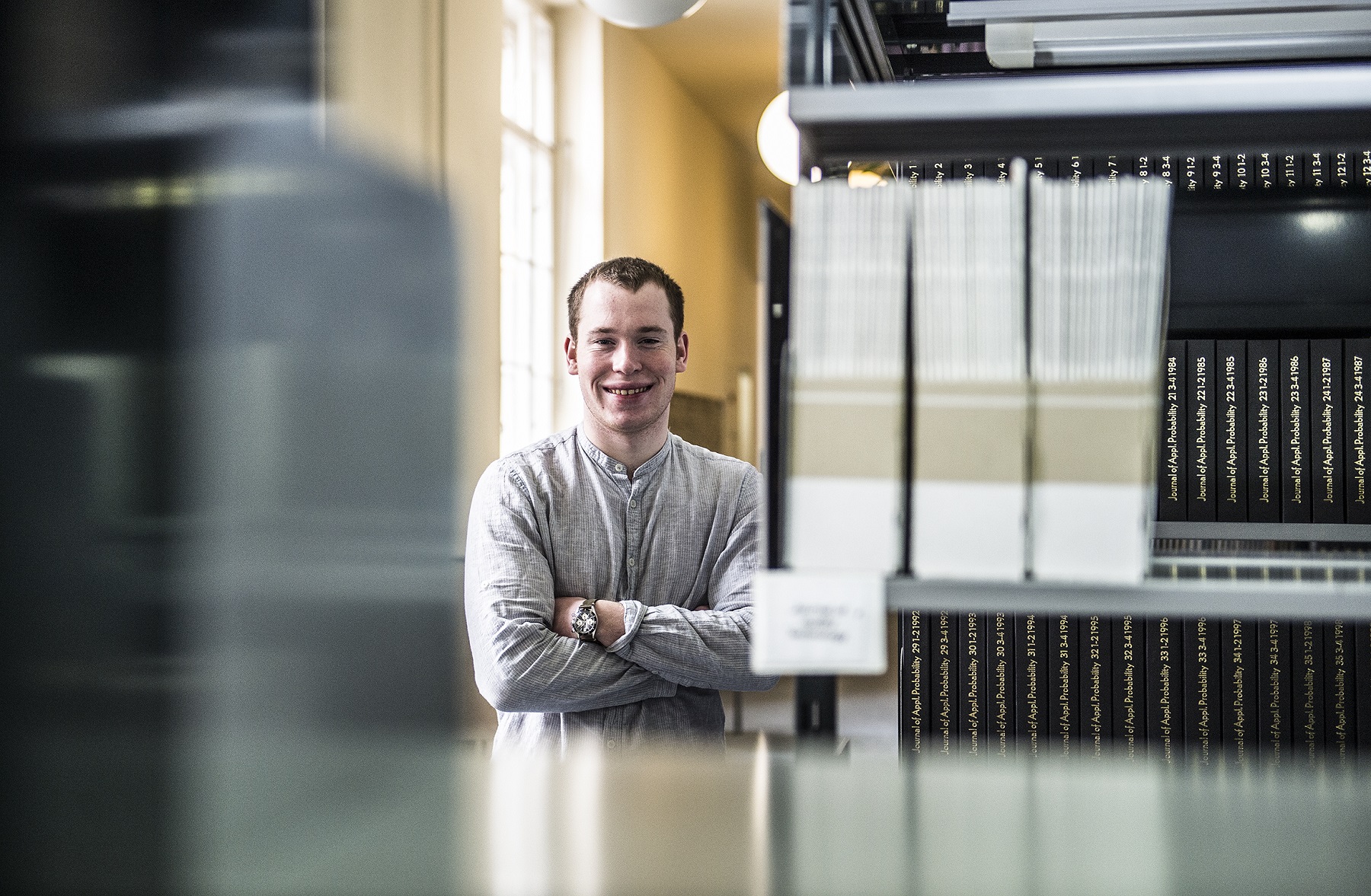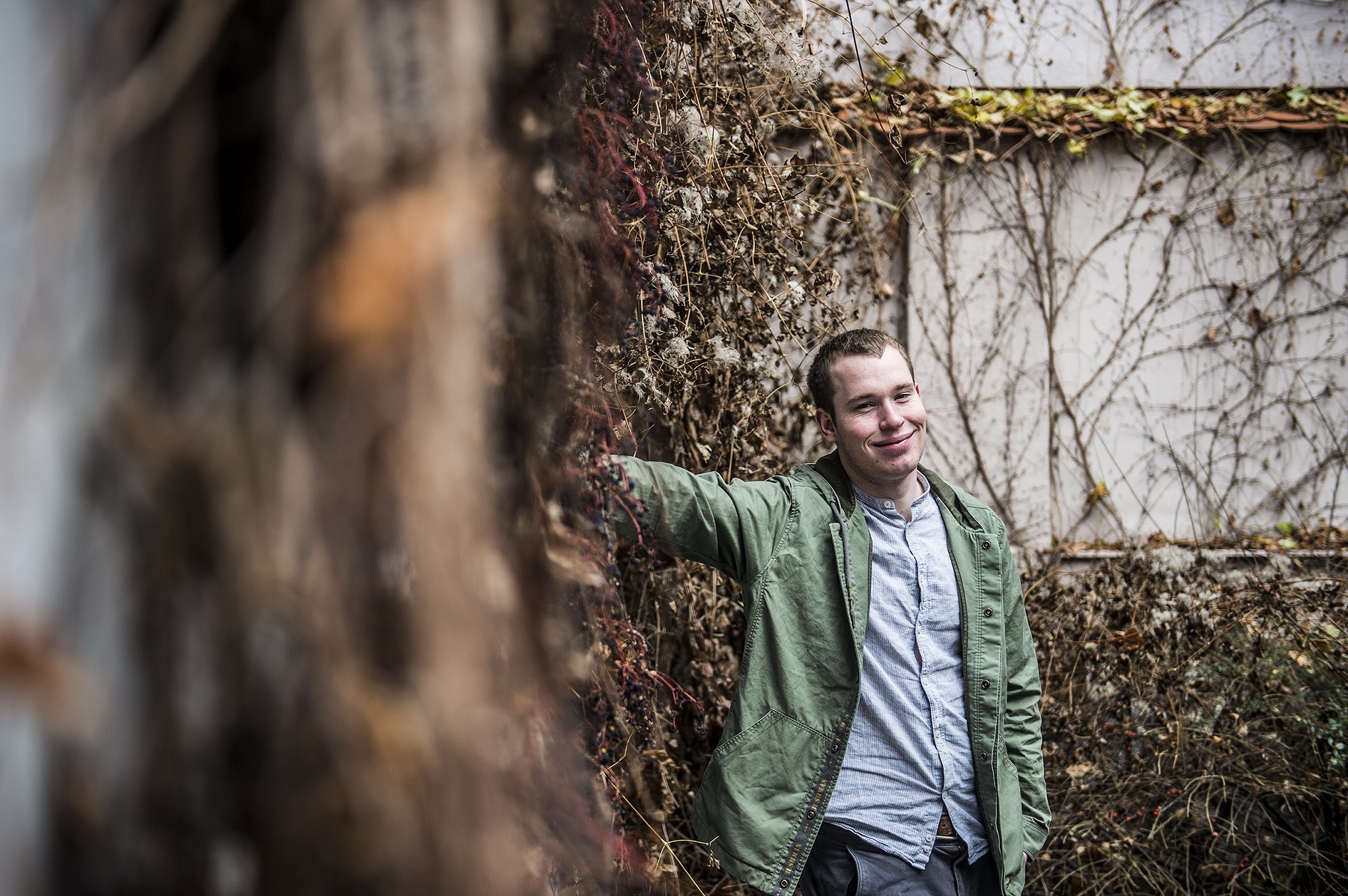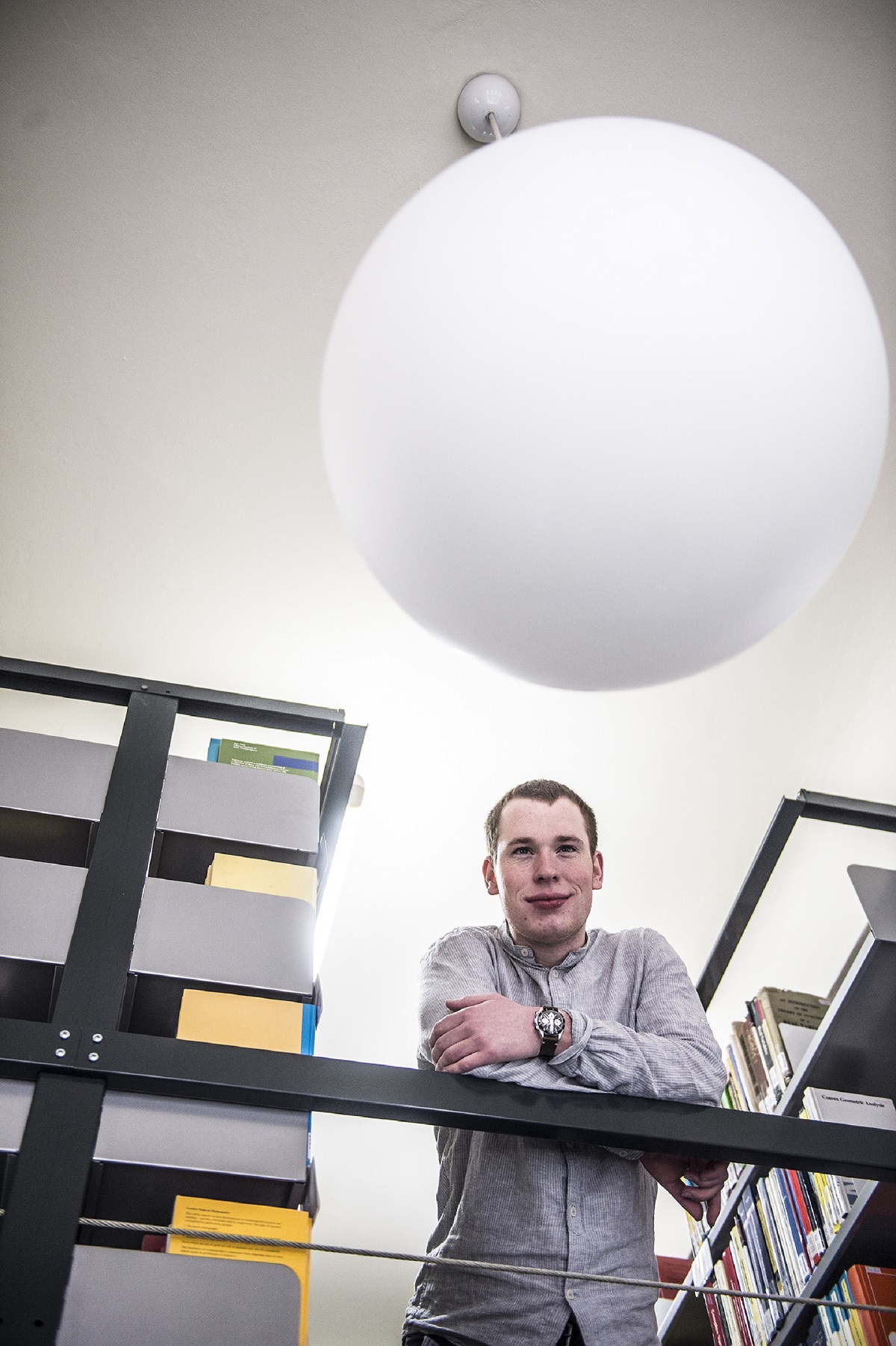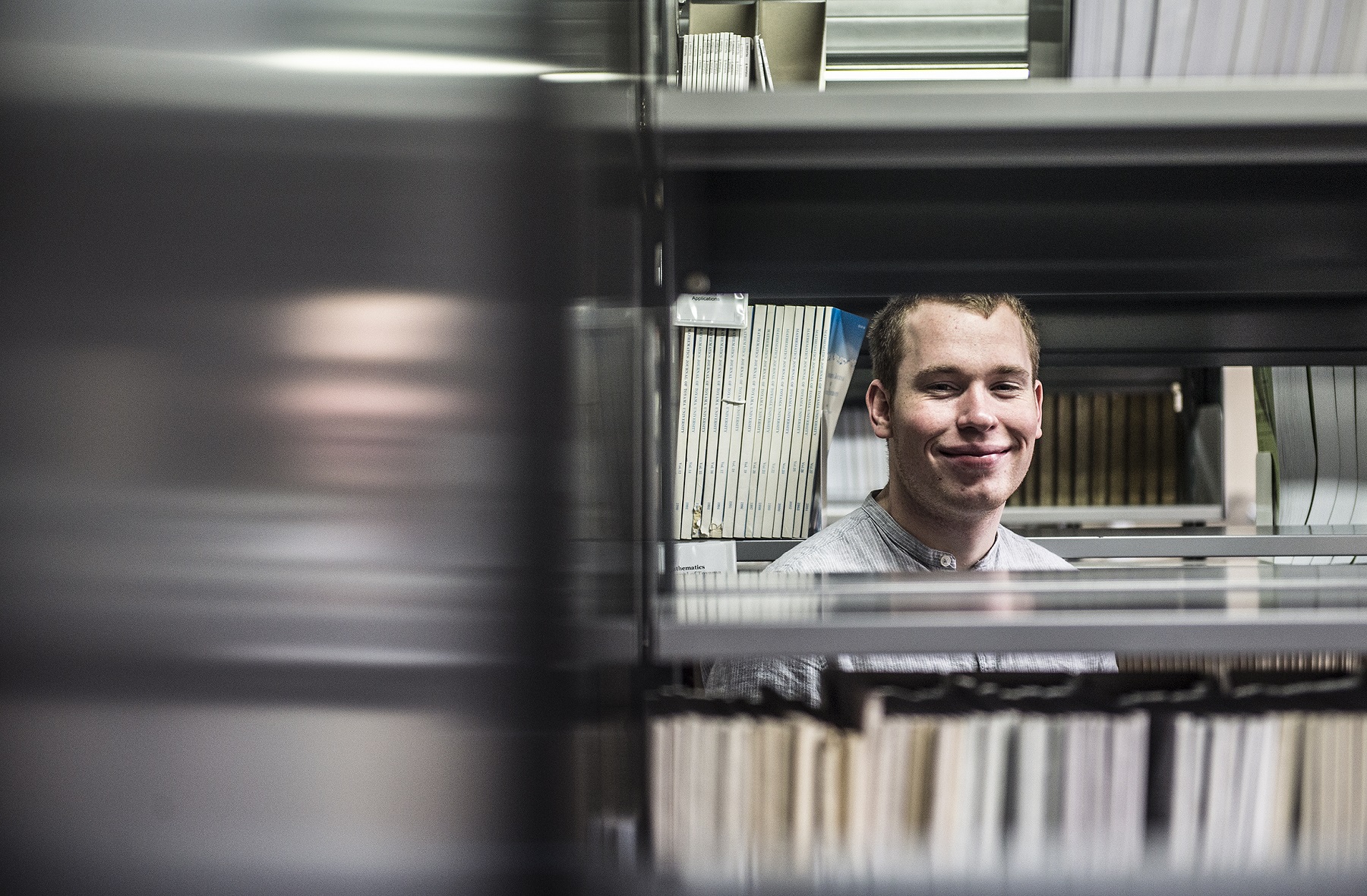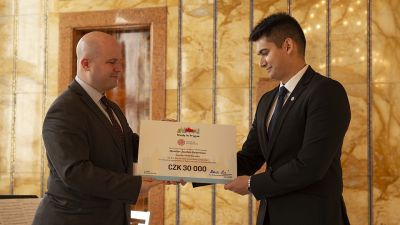Radim Tauber was diagnosed with Asperger’s Syndrome and ADHD in the fourth grade, which went a long way in explaining why he so often had failing grades and had been shuffled from school to school. After completing a technical trade school. He applied for the Faculty of Mathematics and Physics of Charles University. His teachers, familiar with his needs, showed him understanding and helped him to succeed. Most of all, he worked hard himself.
Have you always enjoyed mathematics?
I have not. Since I have Asperger’s Syndrome, which is one of the autism spectrum disorders, and ADHD (Attention Deficit Hyperactivity Disorder), studying at primary school was always very challenging. I got failing or near-failing grades in almost all of my subjects and ended up at a lot of different elementary schools. Ironically, the one with the worst reputation, with the highest number of troubled students, was the one that helped me the most. The teachers there were used to everything. They understood behavioural fluctuations and were able to tailor lessons especially for me.
When were you diagnosed?
In the fourth grade, but the symptoms were already evident in preschool. According to my teachers, I failed to follow assignments as instructed, which was – by far – the most common reaction I encountered. People with Asperger’s often cannot understand what others want us to do, and it is therefore almost impossible for us to accomplish ordinary tasks.
Did your parents understand?
Yes, they did. They never forced me into anything, nor did they have to, as I always found things I enjoyed doing. They’ve always been totally supportive. They arranged private math as well as piano lessons for me. By adjusting lessons to my pace, I suddenly mastered math well. And because I was good at it, I began to enjoy it. My overall poor grades at elementary school meant I didn’t go to a classic high school, but to an electro-industrial trade school, which was better for me in the end. I could specialise much more easily and concentrate on what I enjoyed. For example, I created a so-called cell cultivator, a device that can preserve living cells in an artificial environment, and I won a prize for it in the Secondary School Vocational Activity Competition.
All the same, the entrance exams to the Faculty of Mathematics and Physics must have been tough.
They tested logical reasoning ability, which is an adequate requirement, but the wording of the problems was totally inappropriate for people with ADHD like me. It was really challenging to understand the assignments. I would say I only managed the entrance exams with the help of a higher power (laughs).
Even the start of your studies at the faculty was quite harsh, I heard.
It was a complete shock. I couldn’t get a foothold and I couldn’t last more than 15 minutes into a lecture. The tempo was just too quick and I was unable to absorb all the information, let alone take notes. It felt like hearing only the rustling of leaves. However, the faculty was amazingly helpful and it’s possible to agree on a plan with your teachers. I took advantage of a so-called slowdown option designed for students with physical, mental, or personal difficulties. It meant spreading out study obligations for one year over two. In the first fall semester, I passed only two exams, but then, in the spring semester, I managed to catch up.
How does individualised learning work in practice?
I arrange with the teachers to assign me work and I sit in an empty classroom next to their office and work there all day, sometimes going to them to ask questions. It helps tremendously. I can then study for the exam in one week without going to seminars or lectures during the semester. I have to complete the same course load as anyone else. And sometimes even more – but I can work at my own pace.
What is crucial for a person with your disability?
To not be embarrassed to talk about their problems. To explain exactly what they need and what would help. Educators did not understand at first why I didn’t go to lectures and engage in the class. When they found out the reason was not laziness, they tried to help. Often a small step is enough to make a big difference.
How do your classmates see you?
My lifelong specificity lies in the fact that I make an absolutely disastrous first impression. In a new environment, among strangers, I am thinking about a lot of things, which takes away my focus on controlling my demeanour. I then often react inappropriately, for example, gesticulating excessively or modulating my voice strangely. I can sound uncomfortable. Sometimes I am also too frank. Over time, when I make closer contact with a person, it gets better.
Do you have to ‘reel in’ or tamp down your behaviour?
Very much so. But sometimes, I just do something because I need to do it, and I don’t care what others think. I might whistle a tune that’s going through my head when I’m in a good mood, even if it is inappropriate. Sometimes, when I’m thinking, I’ll stomp or walk in circles to reel in my ADHD. It seems normal to me.
You’re now a senior. What are your plans?
I have quite a few interests. I’ve been working on my own theory about the foundations of mathematics for a few years now. In order to develop it further, and maybe publish it one day, I will need money. That’s why I’m training in programming and computer technology, so that I can start an IT business. I don’t want to be an average scientist, I want to do something extraordinary. It may seem a bit pretentious, but that’s how my whole life works. I always set the highest goals for myself. I may not achieve them, but I at least want to try.
| Radim Tauber |
| Radim Tauber was diagnosed with Asperger’s Syndrome and ADHD at elementary school age, which went a long way in explaining why he so often had failing grades. He found support and love at home which helped him improve. After completing a technical trade high school, he applied for the Faculty of Mathematics and Physics of Charles University. His professors at first did not understand what appeared as disinterest; when they learned Radim needed a helping hand, they helped him put together a special study programme and showed understanding for his needs. |


